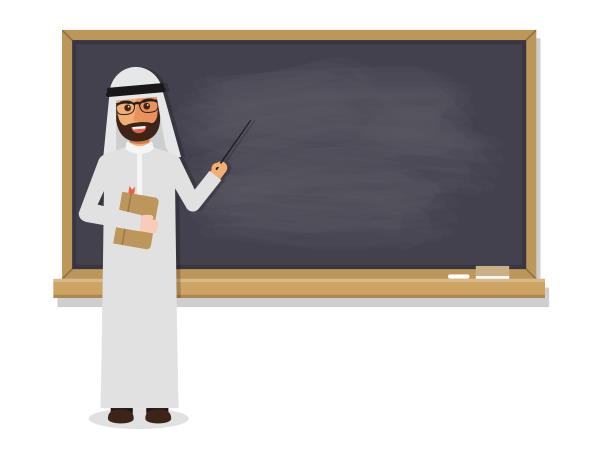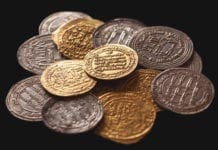Continuously benefiting from good deeds
Here is a list of 4 actions which is Allah accepts will continue to add good deeds onto your account, even after death. These are:

A) The Righteous Son:
One of the great bounties from Allah, the Almighty, upon His servants is providing the righteous offspring to help them obey Allah; those who will follow them in doing good deeds and be the reason of raising their grade in Paradise.
The Prophet of Allah (Sallalahu Alaihi Wasalam) said:
“Allah raises the level of His righteous servant in Paradise so that he (the servant)says: ‘O Allah from where have I deserved this?’ Allah says: “Because your children asked forgiveness for you.” (Narrated by Ahmed).
Allah, the Almighty describes His servants as Allah says:
“’Adn (Eden) Paradise (everlasting Gardens), which they shall enter and (also) those who acted righteously from among their fathers, and their wives, and their offspring. And angels shall enter unto them from every gate.” (Surat Ar-Ra’d: 23).
Moreover, angels invoke Allah to allow the faithful, pious offspring follow the righteous parent. Allah says on their tongues:
“Forgive those who repent and follow Your Way, and save them from the torment of the blazing Fire! {7} “Our Lord! And make them enter the ‘Adn (Eden) Paradise (everlasting Gardens) which you have promised them, and to the righteous among their fathers, their wives, and their offspring! Verily, You are the All-Mighty, the All-Wise.” {8} (Surat Ghafir: 7-8)
It was narrated by Abu Hurairra that the Prophet Mohammad (Peace and blessings of Allah be upon him) said: “When a man dies, his acts come to an end, except in three cases: an ongoing charity, knowledge from which people continue to benefit, and a righteous child who prays for him.” (Reported by Sahih Muslim)
B) Useful Knowledge:
Allah, the Exalted, says:
“Are those who know equal to those who know not?” (Surat Az-Zumar: 9).
Allah says:
“Allah will exalt in degree those of you who believe, and those who have been granted knowledge.” (Surat Al-Mujadilah: 11)
Among the means of spreading knowledge are books, publications, booklets, cassettes, internet, knowledge assemblies, television and satellite TV channels, magazines, newspapers and building schools and Islamic institutions.
The rewards of these means are according to the participation either by writing, publications, distributions or helping in expenses.
Examples of useful knowledge are teaching Qur’an and it’s science, teaching sciences of Sunnah, tradition, jurisprudence and devotions as well as teaching supporting sciences such as Arabic language and any other science and knowledge that are useful for the religion or life of Muslims. Indeed, teaching and learning religion is most important.
Among the benefits of learning, teaching and spreading knowledge is that it guides those who are astray to the right way, wakes up the headless, adds more to the assiduous, illuminates the illiterate his way and it is the inheritance of Prophets. It was narrated by Abu-Darda’ that he said: I heard the Apostle of Allah (Peace and blessings of Allah be upon him) say:
“If anyone travels on a road in search of knowledge, Allah will cause him to travel on one of the roads of Paradise. The angels will lower their wings in their great pleasure with one who seeks knowledge, the inhabitants of the heavens and the Earth and the fish in the deep waters will ask forgiveness for the learned man. The superiority of the learned man over the devout is like that of the moon, on the night when it is full, over the rest of the stars. The learned are the heirs of the Prophets, and the Prophets leave neither dinar nor dirham, leaving only knowledge, and he who takes it takes an abundant portion.” (Narrated by Abu Dawood, At-Tirmidhi, Ibn Majah and Ibn Hayyan).
Knowledge here means religious knowledge. It was narrated by Ibn Masoud that he said: I heard the Prophet said:
“May Allah freshen the affairs of a person who hears something from us and communicates it to others exactly as he has heard it (i.e., both the meaning and the words). Many a recepient of knowledge understands it better than the one who has heard it.” (Reported by At-Tirmidhi)
Mu`awiyah (May Allah be pleased with him) reported: The Messenger of Allah (Peace and blessings of Allah be upon him) said, “When Allah wishes good for someone, He bestows upon him the understanding of Deen.” (Reported by Al-Bukhari and Muslim)
C) Running a Charity:
The running charity is the charity whose reward and benefits are continuous and permanent as long as the charity exists.
Examples of running charity that exist these days include building mosques, providing water in the streets, planting trees, religious endowments and technical institutions in poor countries.
In particular, the last two examples are among the best because they provide continuous income and teach a lot people technical skills which benefit them in their life.
D) Building Mosques:

It is a great opportunity came to the man who built a mosque to gain a great reward. The Messenger Muhammad (Peace and blessings of Allah be upon him) said: “Whoever built a mosque, with the intention of seeking Allah’s pleasure, Allah will build for him a similar place in paradise.” (Reported by Sahih Al- Bukhari)
Allah, the exalted, praises those who build His house (Mosque), and mentioned them as believers as Allah saying:
“The mosques of Allah shall be maintained only by those who believe in Allah and the Last Day”. (Surat At-Taubah: 18)
Taking care of mosques has two meanings; the first is by building or repairing mosques, whereas the second is by performing prayers and reading Qur’an in mosques or cleaning and taking care of them.
Allah, the Almighty, saying:
“In houses (mosques) which Allah has ordered to be raised (to be cleaned, and to be honoured), in them His Name is remembered [i.e. Adhan, Iqamah, salat (prayers), invocations, recitation of the Qur’an]. Therein glorify Him (Allah) in the mornings and in the afternoons or the evenings, {36} Men whom neither trade nor sale (business) diverts from the remembrance of Allah (with heart and tongue) {37}”. (Surat An-Nur: 36-37)



